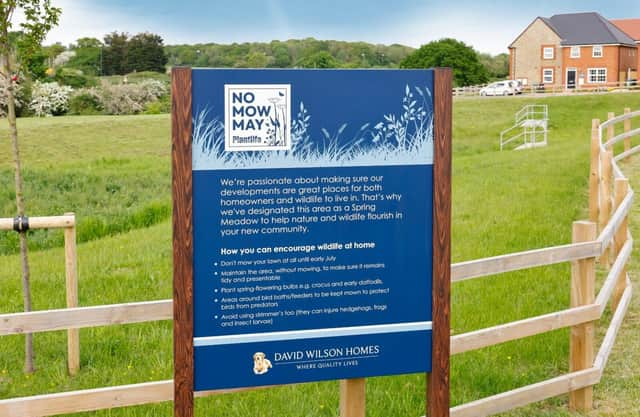Lower Willingdon residents encouraged to participate in No Mow May
This article contains affiliate links. We may earn a small commission on items purchased through this article, but that does not affect our editorial judgement.


This is in light of new research, which recently found that mowing a lawn less frequently can provide enough nectar sugar for ten times the number of pollinating insects, such as bees and butterflies. The housebuilder is encouraging its residents and the local community to follow suit by putting down the lawnmowers in their own gardens between May and July to help boost biodiversity and allow grass and wildflowers to grow freely.
With 97% of flower rich meadows having disappeared since the 1970s, the campaign aims to support wildlife, tackle pollution and lock away carbon below ground. By leaving grass to grow, Barratt David Wilson Southern Counties and participating residents are helping to provide safety and sustenance for bees and other pollinating insects. The housebuilder is also asking homeowners to check their hedges this summer to see if they have any birds nesting in them. If there are birds nesting, then hedges should not be cut until the end of the nesting season in September.
Advertisement
Hide AdAdvertisement
Hide AdKimberley Benson, Sales and Marketing Director for Barratt David Wilson Southern Counties, comments: “For the second consecutive year in a row, we are proud to champion Plantlife’s No Mow May initiative. We encourage our residents join the cause and help us to create a wider network of safe homes for nature.”
Barratt David Wilson Southern Counties has a long term partnership with RSPB which helps to give nature a home on its developments. As part of this it is encouraging all homeowners to get involved through the Nature on Your Doorstep campaign here rspb.org.uk/natureonyourdoorstep
Barratt David Wilson Southern Counties and RSPB want more people to act for nature in their homes and outdoor spaces, and to bring people together to share their experiences, ideas and advice about helping nature where they live. Hosted on the RSPB website, the Nature on Your Doorstep has resources and the online community provides expert tips and tricks to make your space a happier place for you, and the nature on your doorstep.